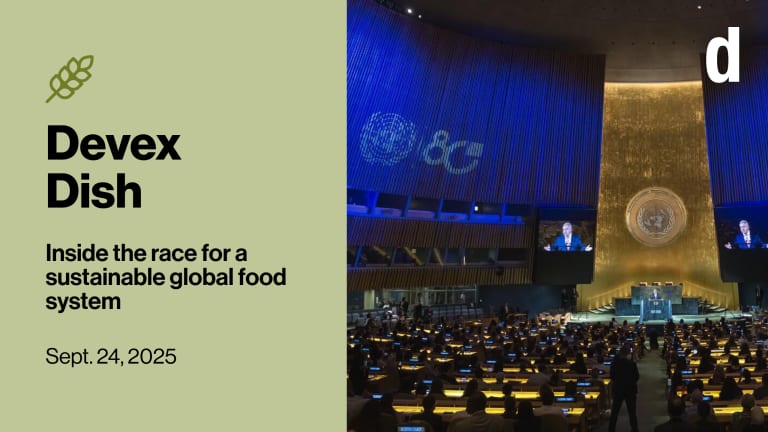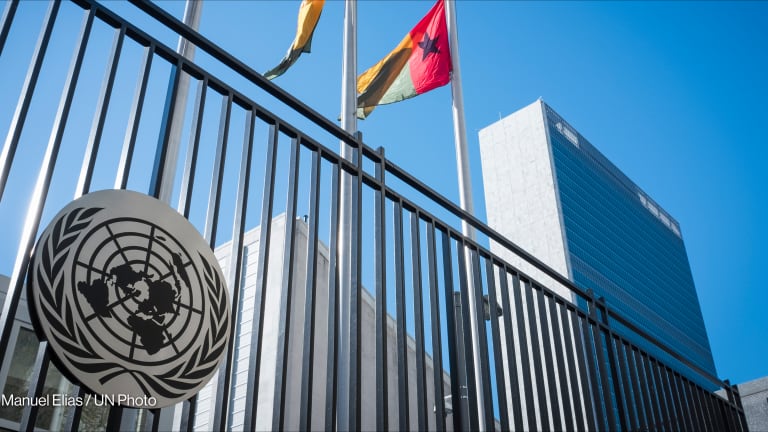The United Nations is grappling with simultaneous crises of funding and relevance, as its secretariat pursues controversial reforms while implementing sweeping budget cuts that some experts worry could undermine the organization’s ability to address global challenges.
Ayaka Suzuki, director of strategic planning in the U.N. Secretary-General’s office, confirmed that the U.N. system has already lost roughly 20,000 posts amid sweeping austerity measures. Simply put, with $15 billion less in the U.N. system, “there’s no money, so we have to cut our budget,” Suzuki explained at a Devex Impact House event on the sidelines of the United Nations General Assembly this week in New York. Those austerity measures are separate from the “UN 80” initiative — billed as a once-in-a-generation overhaul ahead of the organization’s 80th anniversary.
“One is austerity measures. We are having a cash problem. … U.N. 80, that is about making us more effective, better able to deliver on our mandate,” she argues. The reforms aim to overcome fragmentation, duplication, and overlaps, with Suzuki describing the process as “the most open and consultative reform process” in her 30 years at the organization. However, critics question whether the timing and approach will strengthen or further weaken the institution.








